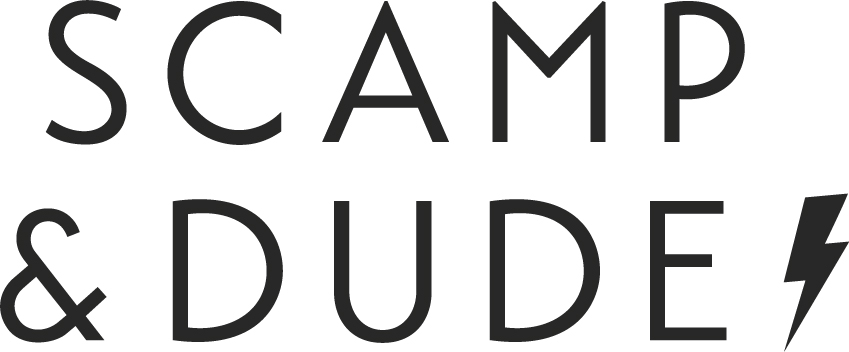

Scamp & Dude

Buckinghamshire, United Kingdom
December 2023
Apparel
Wholesale/Retail
United Kingdom
Scamp & Dude is a superpower-infused clothing brand, transforming the world of fashion into a force for good. Created in 2016 after founder, Jo Tutchener-Sharp, suffered a brain haemorrhage and found herself facing brain surgery. This brush with death, and the fear of leaving her children without a mum, made Jo determined to create a brand that helped children when separated from their loved ones, and Scamp & Dude was born. Initially a kids brand, the slogan ‘a superhero has my back’ was designed to tell kids that someone is watching over them, even when they can’t see you. The Superpower Button (neon pink lightning bolt) on every garment is to be pressed when the wearer needs a burst of superpowers and the Superhero Sleep Buddies, designed from Jo’s hospital bed, were created to bring comfort to kids separated from their loved ones. Scamp & Dude has seen rapid growth of it’s womenswear division, now making up 95% of the collection. It seems grown ups need superpowers too! Scamp & Dude donate a Super Scarf to a woman with cancer for every one sold (so far donated over 32,000), and a Superhero Sleep Buddy to a child who loses a parent for every one sold (so far donated over 6800). So far, over 1.7million pounds worth of superpower infused clothing has been donated to peopl
Overall B Impact Score
Governance 14.4
Governance evaluates a company's overall mission, engagement around its social/environmental impact, ethics, and transparency. This section also evaluates the ability of a company to protect their mission and formally consider stakeholders in decision making through their corporate structure (e.g. benefit corporation) or corporate governing documents.
What is this? A company with an Impact Business Model is intentionally designed to create a specific positive outcome for one of its stakeholders - such as workers, community, environment, or customers.
Workers 21.6
Workers evaluates a company’s contributions to its employees’ financial security, health & safety, wellness, career development, and engagement & satisfaction. In addition, this section recognizes business models designed to benefit workers, such as companies that are at least 40% owned by non-executive employees and those that have workforce development programs to support individuals with barriers to employment.
Community 45.8
Community evaluates a company’s engagement with and impact on the communities in which it operates, hires from, and sources from. Topics include diversity, equity & inclusion, economic impact, civic engagement, charitable giving, and supply chain management. In addition, this section recognizes business models that are designed to address specific community-oriented problems, such as poverty alleviation through fair trade sourcing or distribution via microenterprises, producer cooperative models, locally focused economic development, and formal charitable giving commitments.
What is this? A company with an Impact Business Model is intentionally designed to create a specific positive outcome for one of its stakeholders - such as workers, community, environment, or customers.
Environment 17.3
Environment evaluates a company’s overall environmental management practices as well as its impact on the air, climate, water, land, and biodiversity. This includes the direct impact of a company’s operations and, when applicable its supply chain and distribution channels. This section also recognizes companies with environmentally innovative production processes and those that sell products or services that have a positive environmental impact. Some examples might include products and services that create renewable energy, reduce consumption or waste, conserve land or wildlife, provide less toxic alternatives to the market, or educate people about environmental problems.
What is this? A company with an Impact Business Model is intentionally designed to create a specific positive outcome for one of its stakeholders - such as workers, community, environment, or customers.
Customers 4.3
Customers evaluates a company’s stewardship of its customers through the quality of its products and services, ethical marketing, data privacy and security, and feedback channels. In addition, this section recognizes products or services that are designed to address a particular social problem for or through its customers, such as health or educational products, arts & media products, serving underserved customers/clients, and services that improve the social impact of other businesses or organizations.